Differences Between an Ohio Financial Responsibility Bond and a Named Operator Auto Insurance Policy6/22/2014 There are a lot of similarities between an Ohio financial responsibility bond and a named operator policy. But where a lot of confusion comes in stems from the differences between the two. For Ohio residents who need an SR22 auto insurance filing but don't own a vehicle, both are viable options. But which one should you choose to attach the SR22 filing to? You can find a lot of information online about a named operator policy. But financial responsibility bonds are only sold in the state of Ohio. That's why it's a lot harder to find information online about a financial responsibility bond. This article will help you understand what you need to know about the similarities and differences between the two. Both of these types of policies tend to come into play when someone needs an SR22 state filing for auto insurance, but they don't own a vehicle that they can insure . Without a vehicle to insure you can not buy regular auto insurance. So you need either a financial responsibility bond or a named operator policy.... An SR22 filing can be attached to either policy, just like they attach to a regular auto insurance policy. Similarities:
Differences
Note: * Many people who own vehicles take out financial responsibility bonds to make them legal to drive in the state of Ohio. As long as the bond covers owned vehicles, then yes, you are driving legally. However, only owning of financial responsibility bond when you own a vehicle is a big mistake! For one thing, state minimum liability coverage is lousy! And also, with a bond you can not loan your vehicle to anyone and be covered. So if you only have a financial responsibility bond to cover the vehicle you own, and you loan your vehicle to someone who causes an accident, you're on the hook! So while owning a financial responsibility bond does make you legal to drive a vehicle that you own, it is still a very dumb strategy! Summary: There's not all that much difference between the a named operator policy and a financial responsibility bond. But now that you have seen the differences between the two, you can decide which policy would be the better fit. No matter which type of non owner's policy that you decide on, I have several companies for each type of policy that go easy on drivers who also need an SR22 filed with the Ohio state BMV. Fill out one of the two quote forms below and I will find you the company with the best rate. And as always, I handle your information personally and privately. Get an Ohio Named Operator Insurance Quote with Lyles Insurance Get an Ohio Financial Responsibility Bond Quote with Lyles Insurance Call me for a Quote Related Articles: What is an Ohio SR22 Bond? Understanding named operator (non-owner) auto insurance policies and how to get the best rate Ohio SR22 Bond FAQ's Ohio BMV Random Letter Selection Auto Insurance Check: FAQs
0 Comments
If you are required to carry an auto insurance SR22 filing to reinstate your drivers license but you do not own a vehicle, in most states, you will need to take out what is known as a Named Operator's Policy (a.k.a. non-owners policy). Here's how the states breakdown concerning those who don't own a vehicle but need an SR22 filing:
What coverage is offered with a named operator's policy? With a named operator's policy, the only auto insurance coverage that is offered is liability coverage, medical payments coverage, and uninsured motorist bodily injury coverage. No other coverages are offered under a named operators policy. Comprehensive and Collision coverage (which covers the vehicle you are borrowing) IS NOT AVAILABLE WITH A NAMED OPERATOR'S POLICY. Other differences between a named operator policy and regular auto insurance.
What is SR22 insurance?
When people need an SR22, this is where it gets confusing. An SR22 is not insurance at all. It is simply a state filing that attaches onto an auto insurance policy or a named operator's policy. Basically what an SR22 does is let the state know that you're carrying continuous auto insurance liability coverage, whether it be through either type of policy. An SR22 is how the state keeps dibs on you to make sure you're carrying at least the state minimum liability coverage. Whether you have a named operator's policy or a regular auto insurance policy, as long as you're required to carry an SR 22 attached on to either one of them, you must make sure this policy doesn't cancel. If a policy cancels that has an SR22 attached to it, the insurance company is required by law to notify the state BMV/DMV. When that happens, your license will again be suspended until you buy another policy with an SR22 attached, or reinstate the old policy that canceled. What happens if I take out a named operator's policy and then buy a vehicle later on? If you have an active named operators policy and you buy a vehicle, you need to let your agent know right away before you drive the vehicle off the dealership lot. That is because named operator policies do not cover owned vehicles. From there, the insurance agent or company will do one of two things: they will either add a vehicle and convert the named operator's policy into a regular auto insurance policy...... or the agent will simply cancel the named operator's policy, and immediately rewrite the policy as regular auto insurance. Either way, the process is very simple and only takes a few minutes to complete. But again, it is very important to let your agent know that you have purchased the vehicle because a named operator policy will not cover you in a vehicle that you own. SUMMARY: Some of this named operator policy and SR22 stuff gets confusing. I hope this answers any questions you have. But if there's any questions that you have that I haven't answered, feel free to give me a call or drop me an email. It's not as confusing as it seems. I will do my best to help you. If you would like a quote on a named operator policy, click on the link below and I will do the shopping around for you, and find you the company with the lowest rate. And as always, I handle all quotes personally and privately. Get a Named Operator Auto Insurance Quote with Lyles Insurance Call me for a Quote Related Blog Articles: Video: Auto Insurance for Drivers Who Don't Own a Vehicle Video: Basics of a Named Operator Policy Understanding named operator (non-owner) auto insurance policies and how to get the best rate What is a Named Operator (aka non-owner) Auto Insurance Policy? Should I Insure my Classic Car with a Regular Auto Insurance Policy or Classic Car Insurance?6/1/2014 When you have a nice classic car or antique car, it's important to get the right auto insurance coverage on it. And for most classic cars or collector cars, exclusive classic car insurance is almost always better than regular car insurance. This blog entry explains why classic car insurance is by far better than insuring your classic car with regular car insurance. However, before you can insure a classic car with a classic car insurance policy, there are certain qualifications that need to be met. The most important qualification being that you do not use this vehicle as your regular vehicle. Classic car insurance companies are going to want to see proof of insurance on other vehicles on a regular car insurance policy that you drive on a regular basis before they'll write your classic car under a classic car insurance policy. As long as you're not driving your classic car on a regular basis, and you can show that you have insured regular cars on a regular auto insurance policy, there isn't a problem. Another qualification is the age of the vehicle. However different companies have different guidelines about what qualifies as a classic auto. But the general standard with most companies is usually 25 years. Each classic auto insurance company is a little bit different in other qualifications. But for the most part, those are the two main things are use and age of the vehicle (and of course, age doesn't always apply with special edition collector cars and exotic vehicles). Why is classic auto insurance better than regular auto insurance? There're several reasons for this:
Do I need to get an appraisal?
With many classic car insurance companies, you will not be required to get an appraisal unless there's no other way to determine the vehicle's value. With most companies, you simply might have to send in a few recent pictures that clearly shows the vehicle up close. That's usually the standard. How does the quote process work? The quote process is really no different than getting a quote for any other type of insurance. But the most efficient way is to get a classic car insurance quote is with an independent agent, as opposed to getting a quote one company at a time. Which classic car insurance companies does Lyles Insurance represent? The three companies I carry are Hagerty, JC Taylor, and American Collectors Insurance. All three companies are amongst the top of classic car insurance companies. All you need to do is fill out one quote form and I will do the shopping for you with each company. Once we run your quote with the coverage levels you select, I will find out for you which of the three companies comes out with the lowest rate. And as always, I handle all quotes personally and privately. Get a Classic Car Insurance Quote with Lyles Insurance Call me for a Quote Related Blog Articles: Video: Comparing Classic Car Insurance Cost & Coverage vs. a Regular Auto Policy Video: Basics of a Classic Car Insurance Policy Classic Car Insurance in Ohio: Key points to look for in finding the best coverage |
Author
Dan Lyles is an Independent Insurance Agent serving Ohio, Indiana, Michigan, Pennsylvania, Virginia and West Virginia.. Archives
March 2021
Categories
All
|

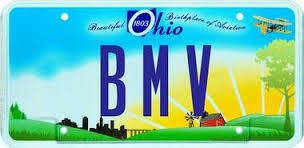
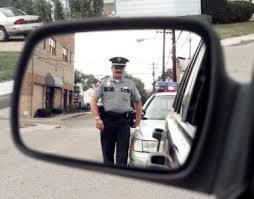
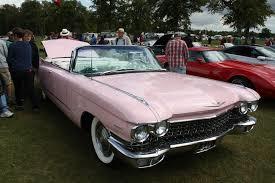
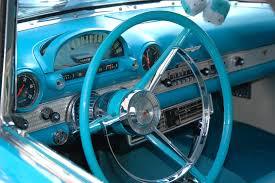
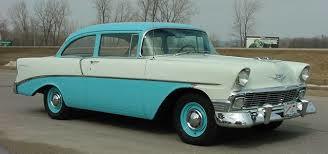

 RSS Feed
RSS Feed